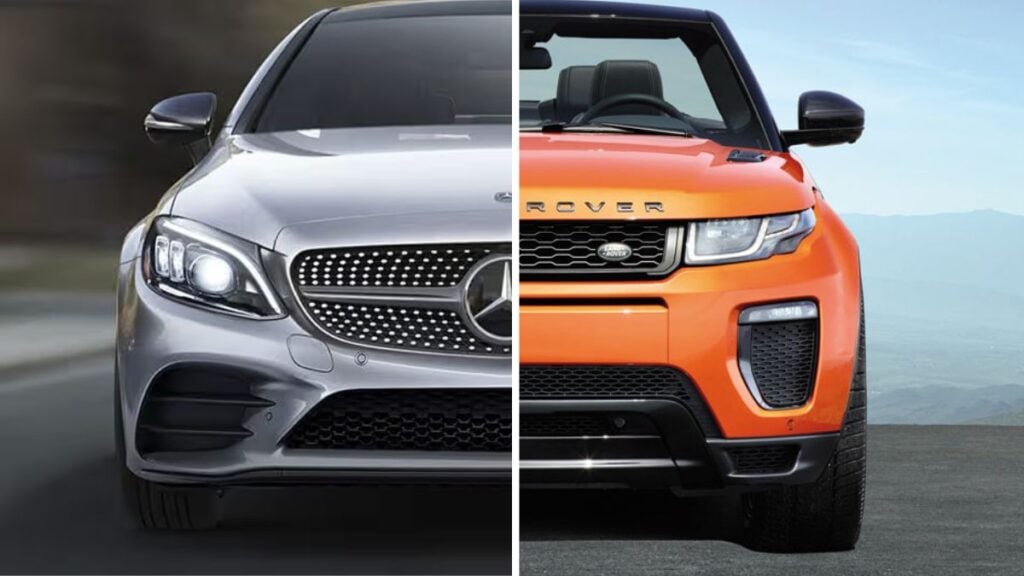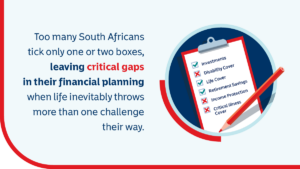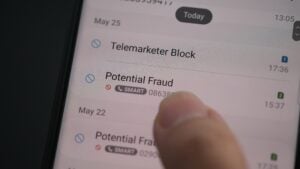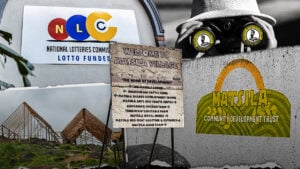Warning issued to Range Rover and Mercedes-Benz drivers in South Africa

The National Consumer Commission (NCC) has issued a warning to South African motorists who drive certain Range Rover and Mercedes-Benz models following the recall of several luxury vehicles due to safety defects.
The commission is urging all affected consumers to act quickly to avoid possible injury or harm linked to potentially life-threatening faults in the affected vehicles.
Jaguar Land Rover Limited has recalled specific Range Rover Evoque models manufactured between 2021 and 2024, along with some 2025 units.
The NCC noted that the passenger airbag may have been improperly folded during the assembly process.
This defect could result in the airbag tearing upon deployment. According to the NCC, a torn airbag might reduce protection during a collision and allow hot gases to escape, increasing the risk of burns to occupants.
“These are basic, life-critical flaws,” said Prudence Moilwa, Head of Complaints and Investigations at the NCC.
“By the manufacturers’ own admission, something went wrong in the production process, and that’s why these recalls are happening.”
Additionally, Mercedes-Benz South Africa has initiated a recall of several 2023 models, including the SL (232), EQS (297), GLC (254), S-Class (223), and C-Class (206).
The company identified a problem with the vehicles’ fuse boxes, which may not have been reworked as required.
This could lead to serious malfunctions, including power failure, impaired instrument clusters, or failure of critical restraint systems, significantly increasing the risk of an accident.
The NCC has also warned that the possibility of a thermal event, such as a fire, cannot be ruled out. Moilwa confirmed that both the airbag and fuse box issues present significant safety concerns.
“We’re talking about improperly folded airbags that can tear and electrical faults that could cause cars to lose power or even catch fire,” she said.
She noted that this kind of failure should not happen, especially not in high-end vehicles like these.
“Manufacturers must invest more in research, development, and quality control to avoid these defects and the high costs associated with recalling and repairing vehicles.”
Consumers must take the recall seriously
While the manufacturers have taken steps to alert vehicle owners, Moilwa said that not all consumers are responding appropriately.
“We are monitoring these recalls and are aware that in some instances, suppliers have informed consumers, but they are not bringing in their vehicles.
“This is a safety-critical recall, and consumers need to understand the urgency,” she said.
The NCC has reiterated that under Section 61 of the Consumer Protection Act, manufacturers are liable for any harm caused by their products, regardless of whether a consumer ignores a recall notice.
Acting NCC Commissioner Hardin Ratshisusu has also urged vehicle owners to take action immediately.
“Affected consumers are urged to immediately contact any nearest authorised dealership of these motor vehicles to have the defect repaired at no charge,” he said.
Moilwa emphasised that the recall process is simple and hassle-free. “It’s similar to taking your car in for a regular service,” she explained.
“The parts are already available. You simply need to book your vehicle at the dealership, and the repairs are done for free.”
“Depending on the dealership’s service policies, you might be dropped off at your destination or given a courtesy vehicle.”
Moilwa also reassured the public that product recalls are standard international practice and supported by South African law.
“Product recalls are legal under the Consumer Protection Act and are common in all countries. They are meant to allow suppliers to mitigate risk before something goes wrong.”
The NCC has not yet confirmed the number of vehicles affected, but Moilwa urged all motorists with Range Rover or Mercedes-Benz models from the specified years to check their vehicles.
“We urge consumers to check whether their vehicle is affected by entering the VIN (Vehicle Identification Number) on the manufacturer’s website, calling the helpline, or contacting a dealership. The VIN is the most important identifier,” she said.
Moilwa warned all vehicle owners not to dismiss the recall simply because their cars appear to function normally. “This is about safety,” she said.
“Taking your vehicle in might feel inconvenient, but it’s nothing compared to the risks of driving a car with a potentially deadly defect.”





















